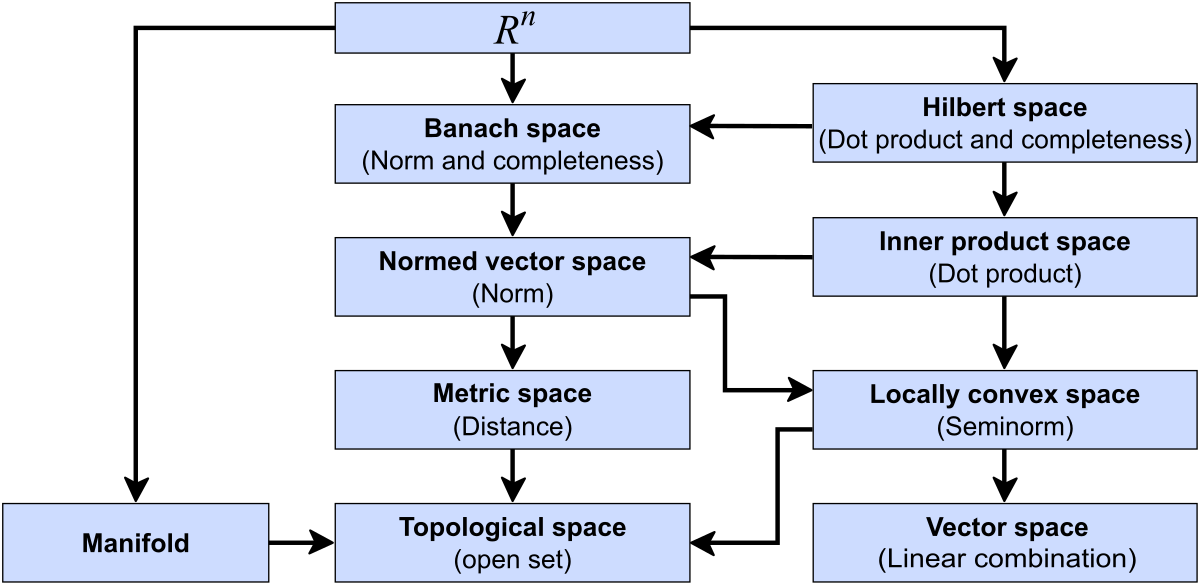It has always struck me as an organisation that has certain agendas that are questionable. It's a bit of a mixed bag, but judge for yourself.
It's worth taking a look at the
Wikipedia article on the Templeton Foundation.
Some key points follow. All of what follows is quoted from wikipedia:
---
The foundation administers the annual
Templeton Prize for achievements in the field of spirituality, including those at the intersection of science and religion. It has an extensive grant-funding program (around $150 million per year as of 2016) aimed at supporting research in physics, biology, psychology, and the social sciences as well as philosophy and theology. It also supports programs related to genetics, "exceptional cognitive talent and genius" and "individual freedom and free markets". The foundation receives both praise and criticism for its awards, regarding the breadth of its coverage, and ideological perspectives asserted to be associated with them.
...
The Templeton Prize was established by
John Templeton and he administered the prize until the foundation was established in 1987, which took it over The prize has "a value of about $1.7 million, making it one of the world’s largest annual awards given to an individual".
The early prizes were given solely to people who had made great achievements in the field of religion; Mother Teresa received the inaugural award in 1973, with other early winners including Sir Sarvepalli Radhakrishnan, Chiara Lubich (1977), and Nikkyō Niwano (1979). In the 1980s, John Templeton began considering the intersection of science and religion, and after he appointed two scientists to the judging panel, scientists who worked at the intersection began receiving it; Alister Hardy was the first, in 1987. More recent winners of the Templeton Prize have included the Dalai Lama in 2012, King Abdullah II of Jordan in 2018, Brazilian Jewish physicist and astronomer Marcelo Gleiser in 2019, and primatologist Jane Goodall in 2021.
... While most of its funding goes to topics in science, philosophy, and religion, around 40 percent of its annual grants go to character development, genius, freedom, free enterprise, and fields associated with classical liberalism. Grants are given to people across all religions since Templeton believed progress in the field of spirituality could come from anywhere. The field of grants was broadened in the 1980s to include scientific fields like neuroscience, psychology, and cosmology, seen as being aligned with the mission.
Some research programs supported by the foundation included the development of positive psychology by Martin Seligman, Angela Duckworth and others; the Black Hole Initiative at Harvard University; the Gen2Gen Encore Prize; the World Science Festival; Pew religious demographics surveys; and programs that engage with Buddhist, Jewish, Muslim, Hindu, Orthodox, Catholic, and Protestant traditions, including support for dialogue with scientists in synagogues, and a grant for advancing scientific literacy in madrasas.
....
The foundation has received both praise and criticism for its awards. The French National Center for Scientific Research (CNRS) has been critical of the foundation for funding "initiatives to bring science and religion closer together." Science journalist Chris Mooney, an atheist, received a 2010 Templeton-Cambridge Journalism Fellowship. In a 2010 article on his
Discover magazine blog, Mooney wrote, "I can honestly say that I have found the lectures and presentations that we've heard here to be serious and stimulating. The same goes for the discussions that have followed them".
Some scholars have expressed concerns about the nature of the awards, research projects, and publications backed by the foundation. These concerns include questioning its integrity, cronyism, and its Templeton Freedom Awards. Journalist Sunny Bains pointed out in 2011 that Templeton Freedom Awards are administered by the Atlas Economic Research Foundation, a group that opposes taking action on climate change and defends the tobacco industry, which also gives the foundation funding.
....
Critics have asserted that the foundation has supported Christian-oriented research in the field of the scientific study of religions.
Wired magazine noted in 1999 that "the scientific-review and grant-award process at the Templeton Foundation is run by Charles Harper, an Oxford-trained planetary scientist specializing in star and planet formation who has a degree in theology. Harper himself is an Evangelical Christian; the scientists who apply to the foundation for support, though, are not required to state their religious beliefs, or to have any."
In 2006, John Horgan, a 2005 Templeton-Cambridge fellow then working as a freelance science journalist, wrote in The Chronicle of Higher Education that he had enjoyed his fellowship, but felt guilty that by taking money from the foundation, he had contributed to the mingling of science with religion. Horgan stated "misgivings about the foundation's agenda of reconciling religion and science". He said that a conference he attended favored scientists who "offered a perspective clearly skewed in favor of religion and Christianity." Horgan fears recipients of large grants from the foundation sometimes write what the foundation wants rather than what they believe.
Richard Dawkins, in his 2006 book,
The God Delusion, interprets Horgan as saying that "Templeton's money corrupts science", and characterizes the prize as going "usually to a scientist who is prepared to say something nice about religion".
Donald Wiebe, a scholar of religious studies at the University of Toronto, similarly criticized the foundation in a 2009 article entitled
Religious Biases in Funding Religious Studies Research?. According to him, the foundation supports Christian bias in the field of religious studies, by deliberately imposing constraints to steer the results of the research.
Jerry Coyne, University of Chicago evolutionary biologist, told
Nature writer Mitchell Waldrop that the foundation's purpose is to eliminate the wall between religion and science, and to use science's prestige to validate religion.
A 2007 article in the LA Times described the foundation as having "drawn criticism for its early support of intelligent design".
Some organizations funded by the foundation in the 1990s gave book-writing grants to Guillermo Gonzalez and to William Dembski, proponents of intelligent design who later joined the Discovery Institute. The foundation also gave money directly to the Discovery Institute which in turn passed it through to Baylor University, which used the funds to support Dembski's salary at its short-lived Michael Polanyi Center.
A number of journalists have highlighted connections with conservative causes.
Sociologist Robert Brulle listed the foundation as among the largest financial contributors to the climate change denial movement between 2003 and 2010.



